First Wills in Jamaica, now Charles in Canada – these royal tours are forcing the Windsors to confront the past
The survival of the monarchy may well depend on how they atone for past atrocities, writes Nadine White

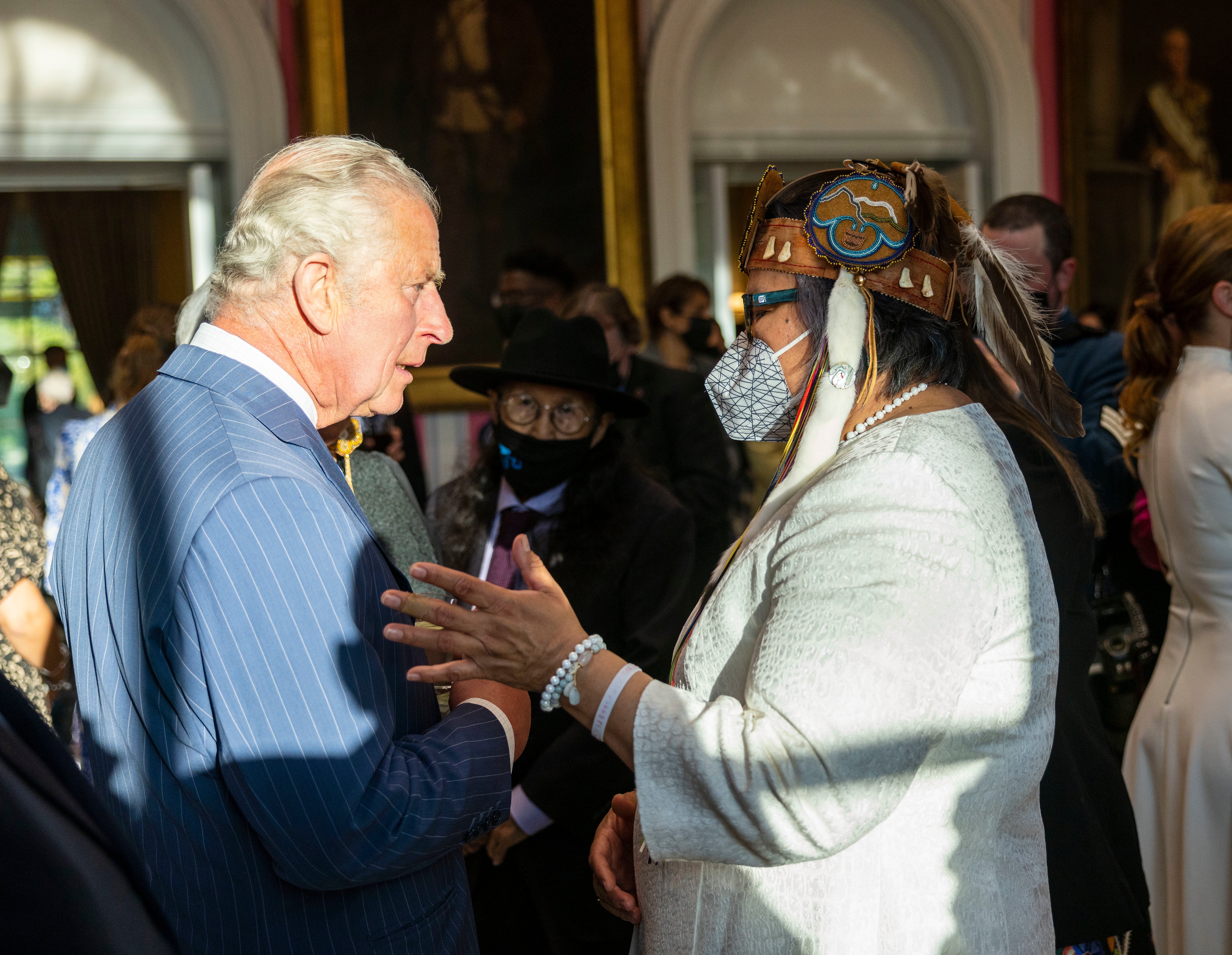
Your support helps us to tell the story
From reproductive rights to climate change to Big Tech, The Independent is on the ground when the story is developing. Whether it's investigating the financials of Elon Musk's pro-Trump PAC or producing our latest documentary, 'The A Word', which shines a light on the American women fighting for reproductive rights, we know how important it is to parse out the facts from the messaging.
At such a critical moment in US history, we need reporters on the ground. Your donation allows us to keep sending journalists to speak to both sides of the story.
The Independent is trusted by Americans across the entire political spectrum. And unlike many other quality news outlets, we choose not to lock Americans out of our reporting and analysis with paywalls. We believe quality journalism should be available to everyone, paid for by those who can afford it.
Your support makes all the difference.Canada’s indigenous communities have appealed directly to Prince Charles for an apology from the monarchy for past colonial genocide during his tour of the country.
This cry for atonement from the palace serves as confirmation – if ever it were needed – of how incumbent it is for the royal family to finally pay their dues by addressing the atrocities of the past.
The future king and his wife Camilla, Duchess of Cornwall, have been on a three-day tour of Canada – where the Queen is head of state – to mark the 96-year-old monarch’s platinum jubilee. It was there that they acknowledged the abuse inflicted upon indigenous schoolchildren from the 19th century until the 1970s.
This, of course, comes after Prince William and Prince Edward’s tours of various Caribbean countries were met with widespread calls for apologies and reparations for the enslavement of African people and genocide of indigenous groups across the region. So, for the avoidance of doubt, issues with Britain aren’t just confined to tropical regions.
From Belize, the Bahamas and Jamaica, to Antigua and Barbuda, Saint Lucia and Saint Vincent and the Grenadines, the royals were consistently confronted with choruses for compensation and faced with the painful legacy of colonialism which underpins their privilege; reminded, at every turn, that they had – in effect – stepped on to a crime scene.
Meanwhile, republican fever is intensifying across the aforementioned countries, as well as in Saint Kitts and Nevis. Most of them have signalled an intent to remove the Queen as head of state, while the British Virgin Islands and CARICOM is pushing back against the UK’s planned imposition of direct rule on behalf of Her Majesty’s government.
Over centuries, the royal family and ruling classes generated power and wealth, which elevated them to the status that they currently enjoy today. This was only possible because of the subjugation, murder and enslavement of African people and indigenous groups in former British colonies. I have addressed this before.
Sure, I can imagine that it would be uncomfortable for members of the royal family to openly acknowledge the truth of their predecessors’ actions and how they benefit from it, because it then calls their entire legitimacy into question – but that doesn’t negate the reality of the situation.
RoseAnne Archibald, Assembly of First Nations national chief in Canada, said the prince “acknowledged” failures in handling the relationship with indigenous people during a reception in Ottawa, the country’s capital, on Thursday.
Numerous leading figures from the country’s indigenous community were invited to this event, along with prime minister Justin Trudeau. Though he did not apologise, a few chiefs agreed that Charles’s recognition of the dark past “really meant something”.
For those who aren’t aware: from 1863 until the 1970s, at least 150,000 indigenous children of Canada were taken from their families by British colonisers and placed in residential schools in an attempt to “assimilate” them into Anglicised society as part of an abhorrent policy which has scarred local communities.
The system was created in association with Christian churches. Many of those children were forced to cut their long hair, banned from speaking their own languages and were physically and sexually abused.
Thousands died at the schools, yet the Crown has never apologised for these crimes or offered compensation. Some former pupils of those schools are still alive today.
Yet Prince Charles did engage with the indigenous groups in Canada which, in fairness, stands out in contrast to Prince Edward literally laughing off an opportunity to discuss reparations with Antigua’s prime minister Gaston Browne during his visit to the island nation in April. Add to that Prince William’s wholly inadequate speech in Jamaica where he essentially said: “I agree with what my dad said in Barbados last November – slavery was bad.”
Following the disastrous royal tours of the Caribbean which sparked various crisis talks within the palace, led by aides who were keen to avoid repeated blunders in the future, it was then announced – ahead of Prince Charles’s visit to Canada – that he would speak with its Aboriginal communities to understand their views. The optics were good, after all.
However, those who are lobbying the royals for tangible reparatory justice want to ask: how long will lip service and mere recognition of the past be acceptable for?
In recent months – following the Sussexes’ allegations of racism at the heart of the royal family and post-Black Lives Matter – the Windsors seem more committed than ever before to demonstrate their support for historically excluded communities.
For example, the Queen’s latest New Year honours list was the most ethnically diverse honours list yet; before that, Buckingham Palace published its diversity data for the first time, pledging to “do better” in increasing representation.
I know of some fantastic, rather radical Black campaigners who received an invitation to this year’s jubilee garden party who didn’t get a look-in before! A seat at the table? Perhaps.
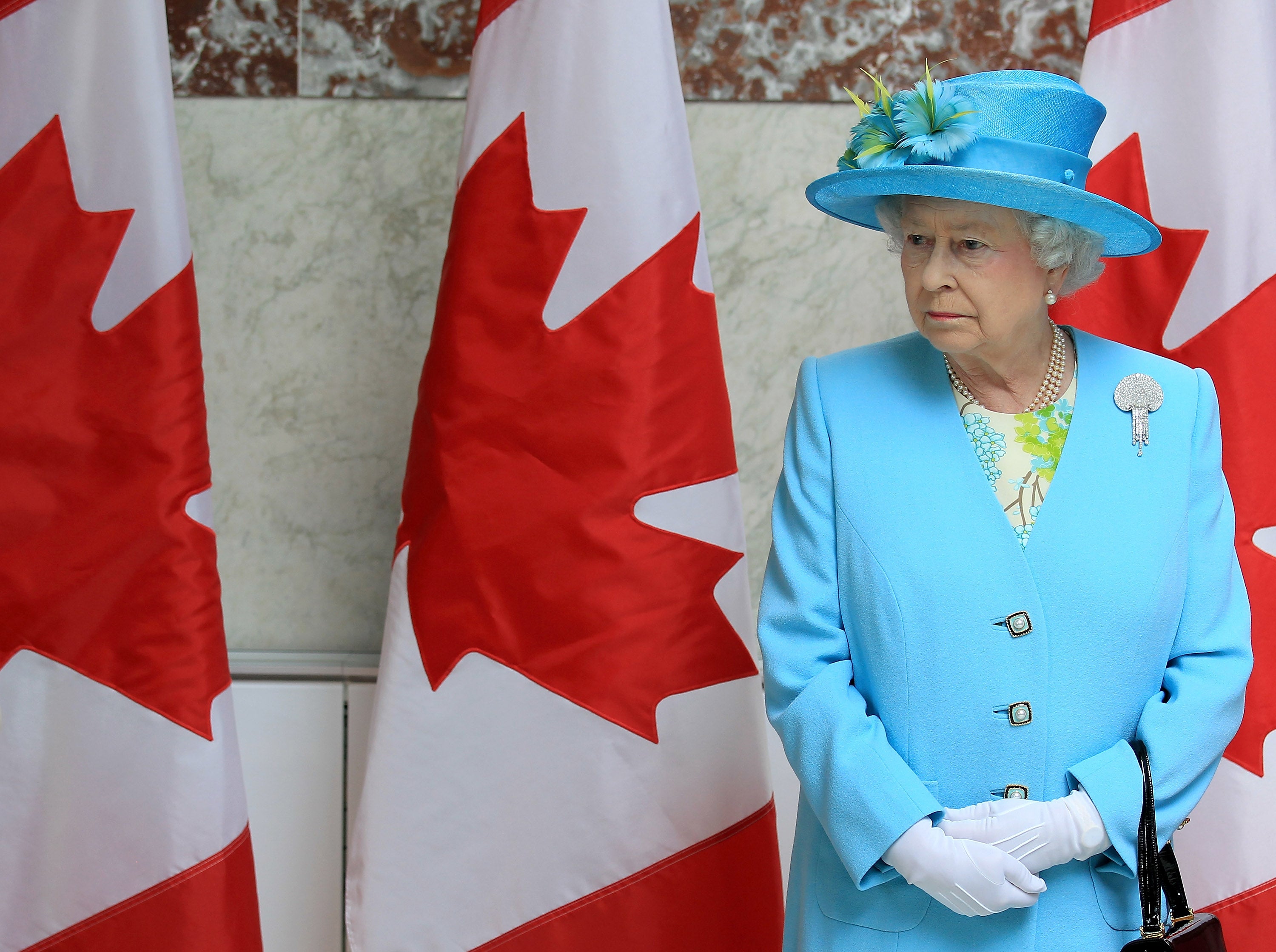
Prior to his Canada trip, Prince Charles attended a meeting with underrepresented university students to hear of their challenges around race; before that, he hosted a lunch for British Overseas Territories speakers’ visit, met refugees from Syria and hosted an event at his residence, Clarence House, to celebrate influential Black Britons.
To keep up to speed with all the latest opinions and comment sign up to our free weekly Voices Dispatches newsletter by clicking here
The Queen is often lauded for her capacity to adapt to the times, as a monarch who has reinvented herself through the ages and reportedly kept her finger on the pulse when it comes to her subjects.
While Her Majesty celebrates 70 years on the throne, only time will tell if her heir – who is known for being more amiable and diplomatic than other senior royals – will rise to renewed, vigorous demands for restorative justice from the Crown.
MBEs aside, given the advent of conversations around tackling structural racism and bringing about a fairer society for all, the survival of the monarchy – its key priority – may very well depend on how the royals make amends for past atrocities committed in their name.
Until then, the calls for reparatory justice from Britain will never cease.
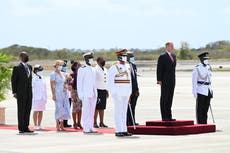

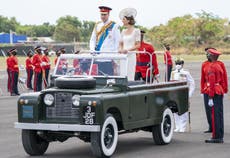
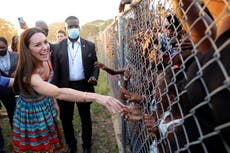
Join our commenting forum
Join thought-provoking conversations, follow other Independent readers and see their replies
Comments